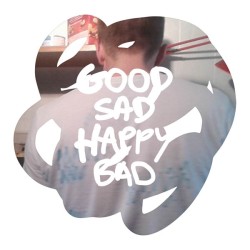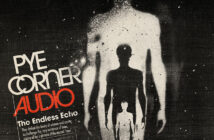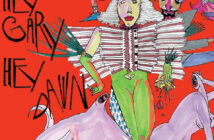The official history of popular music records that in the wake of Kennedy’s assassination, the mourning USA was ripe for a rush of joyful, raucous euphoria, which they duly received in December, 1963, in the form of the Beatles’ new single, ‘I Want To Hold Your Hand’. By the time the band arrived in person in February ’64, the entire country was enthralled to the new sound, the course of popular music was forever set and the group, of course, went on to become the most influential of all time. Now, just imagine a world in which events didn’t quite follow this course. Instead of ‘I Want To Hold Your Hand’, imagine another single, released almost simultaneously, became the rush of escapism that enraptured the centre of western culture. That single was ‘Surfin’ Bird’ by The Trashmen. Imagine this became the litmus paper of western popular music. Based in the same rock’n’roll roots as The Beatles, it eschewed polish and progress in favour of bludgeoning repetition, emotion through distortion and ironic amateurism, yet all still with a pop heart. Had that course of events taken place, we may well now live in a world where a band like Micachu & The Shapes are truly treasured.
Good Sad Happy Bad is the group’s 3rd ‘proper’ album release (though the debut only featured Mica Levi’s offsiders, Raisa Kahn and Marc Pell on about half its tracks). If you are already a fan of their work (which I unashamedly am) you will know what to expect, though the album isn’t a mere repetition of previous efforts. The intimate production is still in evidence, as is the rough and ragged (though deceptively virtuosic) playing, the overdriven acoustic sounds, and Levi’s droll, semi-atonal vocals. The instrumentation is suitably deconstructed, often either feeling, or actually being, loop based. Songs end abruptly, while edits reveal a scissors and sticky tape æsthetic. And, of course, is there any other contemporary artist, outside of tUnE-yArDs, who devoids the ukulele of all its kitsch associations and makes it a basis for challenging song-based music? All these things remain. And they remain great to my ears.
The album does sound a little less frenetic overall, than on Jewellery or Never, however. It’s probably stating the obvious to say that it is more melancholy, underneath the droll presentation. “It’s only suffering/only suffering/That keeps my conscience clinging”, Levi sings semi-melodically on album closer ‘Suffering’, while the drums plonk in mid-tempo looseness. The lack of affectation of emotion is, of course, what gives it such emotional depth. This was hinted at in Micachu’s recent mixtape, Feeling Romatic Feeling Tropical Feeling Ill, which stitched together an hour of mournful synth noodling with the odd minimal, broken beat. But here it takes on a human face not present in those instrumental works. Of course the album title, here, gives a big hint at what the group is seeking to achieve – the phrase Good Sad Happy Bad is a reasonably good definition of melancholy in itself.
We get to hear Levi’s speaking voice in ‘Thinking It’, which I’ve not heard before. The wry humour of her text is brilliant, discussing how she will enjoy her old age, but only by hating everything up until then. The music is a kind of twisted, lo-fi take on the type of 50s organ cocktail music that enjoyed a comeback in the ironic 90s. It is humour, but humour whose serious heart is on its sleeve. ‘Oh Baby’, by contrast, sounds deathly serious, Pell’s clanging rhythm and Kahn’s mellow synth stab backing Levi’s weary voice lamenting, “It’s not tough/To give up in a rush/And play dead/With one brush”. ‘Unity’ steals a five bar vocal squeal from some death metal track, lays it over a dry, shuffling drum beat while Levi meanders a laconic drawl of a melody over it. It’s a true highlight of contrasts.
I still remember the first time I heard Michachu on the radio a half-decade ago. It was such a blast of freshness amidst all the shades of retro that even the ‘alternative’ still passes as current and exciting. And, of course, the mainstream is completely wrapped up in polishing its latest copies of banality, an unfortunate side effect of the process of refinement that The Beatles unwittingly began all those decades ago. Fortunately, there are still raw chunks of pop being created around the fringes, Micachu & The Shapes being one of those championing the cause of all The Trashmen who have always lived in the shadows.
Adrian Elmer




